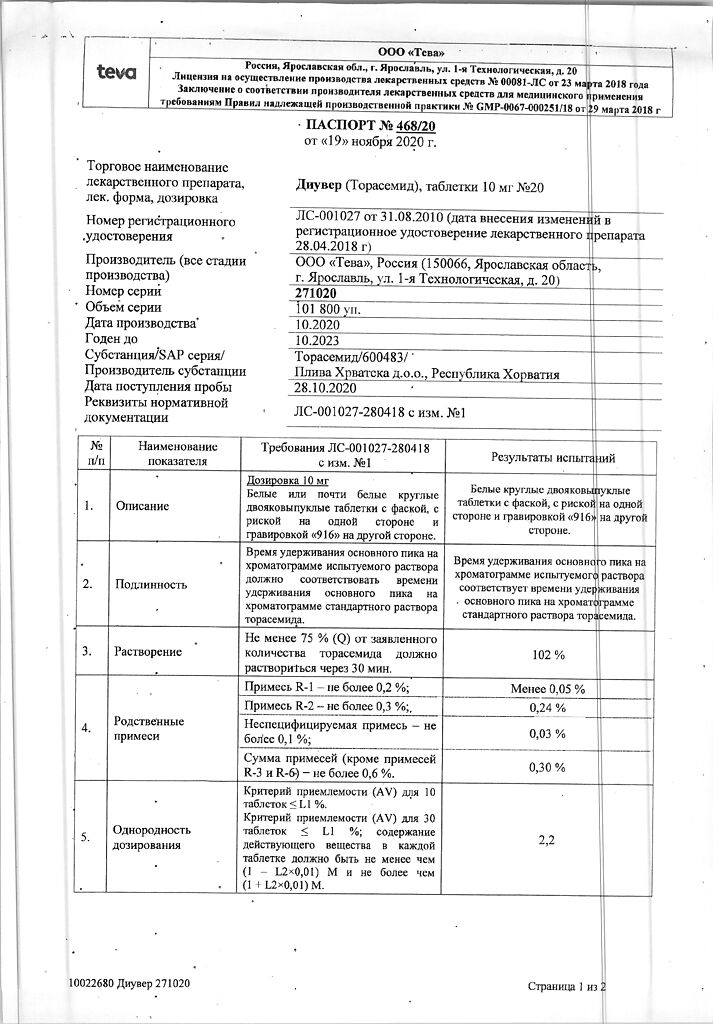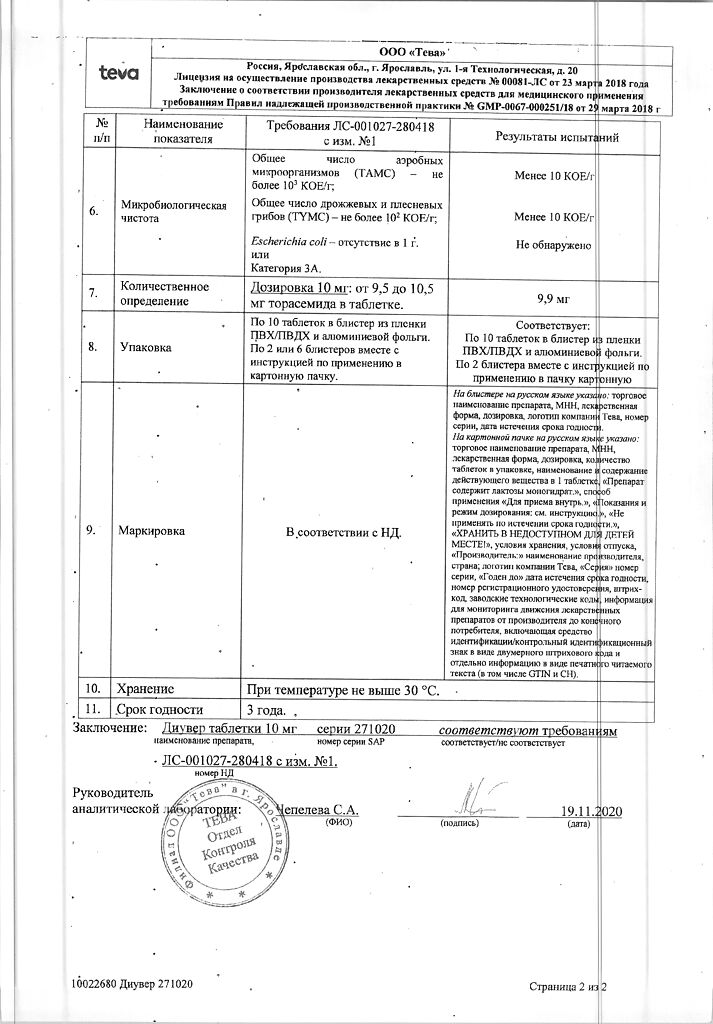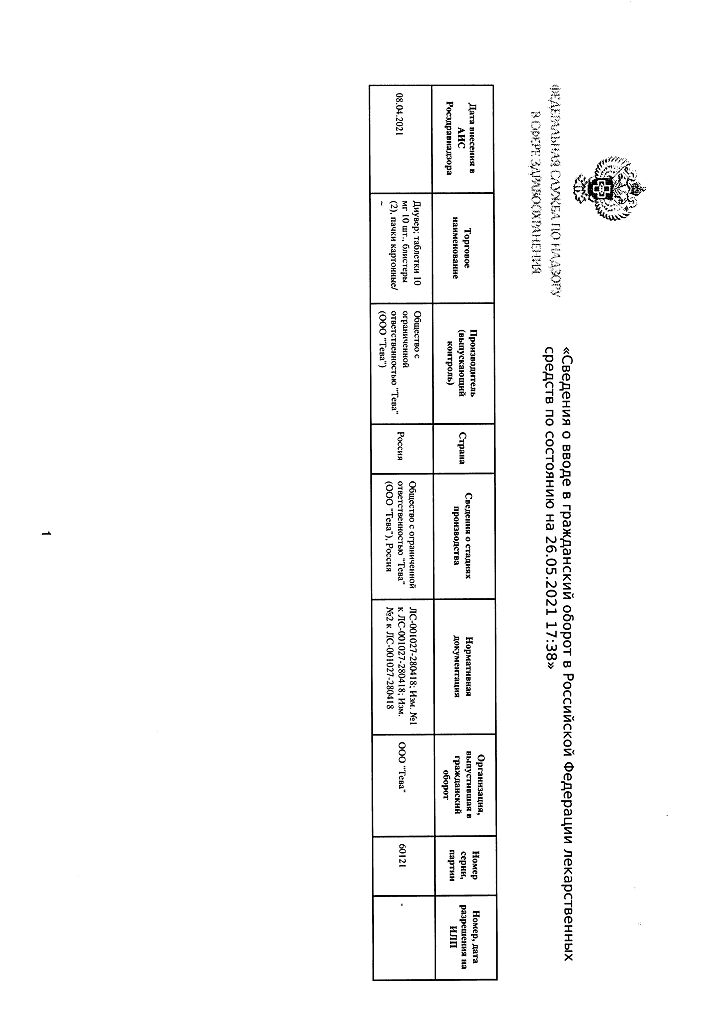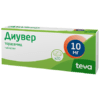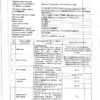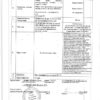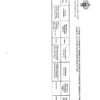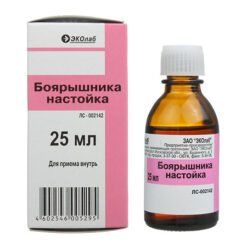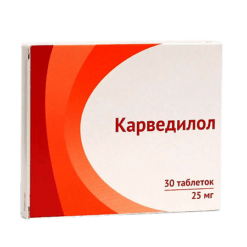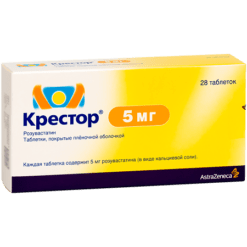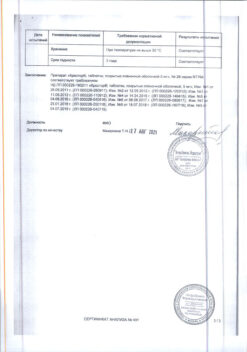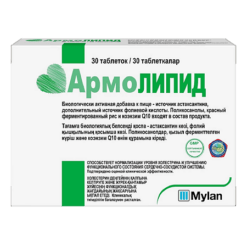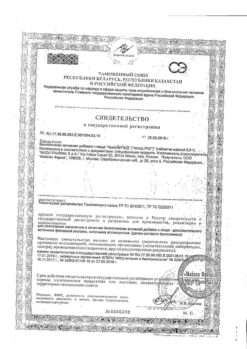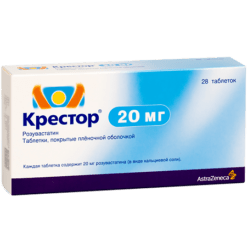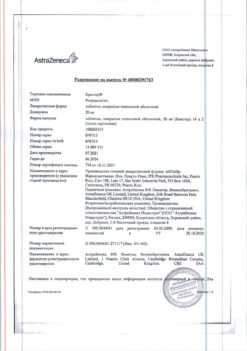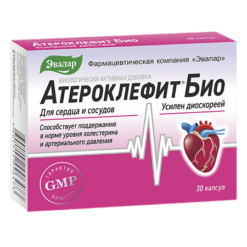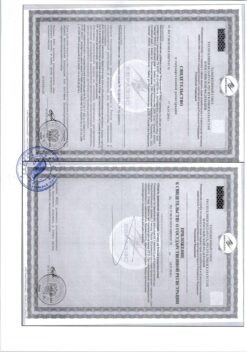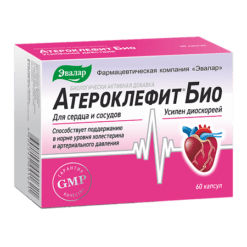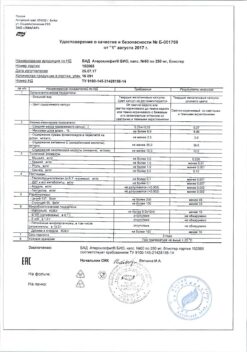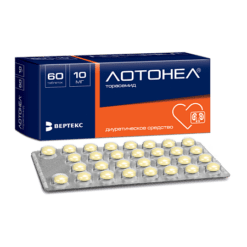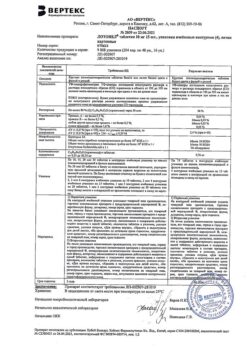No products in the cart.
Diuver, tablets 10 mg 20 pcs
€1.00
Out of stock
(E-mail when Stock is available)
Description
Pharmacotherapeutic group: diuretic agent.
AtCode C03CA04
Pharmacological properties
Pharmacodynamics
Indications
Indications
• edematous syndrome of various origins, incl. for chronic heart failure, liver, lung and kidney diseases;
• arterial hypertension.
Pharmacological effect
Pharmacological effect
Pharmacotherapeutic group: diuretic.
ATX code C03CA04
Pharmacological properties
Pharmacodynamics
Torsemide is a loop diuretic. The maximum diuretic effect develops 2-3 hours after taking the drug orally. The main mechanism of action of the drug is due to the reversible binding of torasemide to the sodium/chlorine/potassium ion contransporter located in the apical membrane of the thick segment of the ascending loop of Henle, as a result of which the reabsorption of sodium ions is reduced or completely inhibited and the osmotic pressure of intracellular fluid and water reabsorption are reduced. Blocks myocardial aldosterone receptors, reduces fibrosis and improves myocardial diastolic function.
Torasemide causes hypokalemia to a lesser extent than furosemide, but it is more active and its action lasts longer.
The use of torasemide is the most reasonable choice for long-term therapy.
Pharmacokinetics
After oral administration, torasemide is quickly and almost completely absorbed from the gastrointestinal tract. The maximum concentration of torasemide in blood plasma is observed 1-2 hours after oral administration after a meal. Bioavailability is 80-90% with minor individual variations.
The diuretic effect lasts up to 18 hours, which facilitates the tolerability of therapy due to the absence of very frequent urination in the first hours after taking the drug orally, which limits the activity of patients.
Communication with blood plasma proteins is more than 99%. The apparent volume of distribution is 16 l.
Metabolized in the liver using isoenzymes of the cytochrome P450 system. As a result of sequential reactions of oxidation, hydroxylation or ring hydroxylation, three metabolites are formed (M1, M3 and M5), which bind to plasma proteins by 86%, 95% and 97%, respectively.
The half-life (T1/2) of torasemide and its metabolites is 3-4 hours and does not change in chronic renal failure. The total clearance of torasemide is 40 ml/min, renal clearance is 10 ml/min. On average, about 83% of the dose taken is excreted by the kidneys: unchanged (24%) and in the form of predominantly inactive metabolites (M1 – 12%, M3 – 3%, M5 – 41%).
In renal failure, T1/2 does not change, T1/2 of metabolites M3 and M5 increases. Torsemide and its metabolites are slightly eliminated by hemodialysis and hemofiltration.
In case of liver failure, the concentration of torasemide in the blood plasma increases due to a decrease in the metabolism of the drug in the liver. In patients with cardiac or liver failure, T1/2 of torasemide and the M5 metabolite is slightly increased, drug accumulation is unlikely.
Special instructions
Special instructions
Use strictly as prescribed by your doctor.
Patients with hypersensitivity to sulfonamides and sulfonylureas may have cross-sensitivity to Diuver.
For patients receiving high doses of Diuver for a long period, in order to avoid the development of hyponatremia, metabolic alkalosis and hypokalemia, a diet with sufficient sodium content and the use of potassium supplements are recommended.
An increased risk of developing fluid and electrolyte imbalances is observed in patients with renal failure. During the course of treatment, it is necessary to periodically monitor the concentration of blood plasma electrolytes (including sodium, calcium, potassium, magnesium), acid-base status, residual nitrogen, creatinine, uric acid and, if necessary, carry out appropriate corrective therapy (with a higher frequency in patients with frequent vomiting and against the background of parenterally administered fluids).
If azotemia and oliguria appear or worsen in patients with severe progressive kidney disease, it is recommended to suspend treatment.
The selection of a dosage regimen for patients with ascites against the background of liver cirrhosis should be carried out in a hospital setting (violations of water and electrolyte balance can lead to the development of hepatic coma). This category of patients requires regular monitoring of blood plasma electrolytes.
In patients with diabetes mellitus or with reduced glucose tolerance, periodic monitoring of glucose concentrations in the blood and urine is required.
In unconscious patients with prostatic hyperplasia and narrowing of the ureters, diuresis control is necessary due to the possibility of acute urinary retention.
During the treatment period, patients should refrain from driving vehicles and engaging in other potentially hazardous activities that require increased concentration and speed of psychomotor reactions.
Active ingredient
Active ingredient
Torasemide
Composition
Composition
1 tablet 5 mg contains:
active ingredient: torasemide 5.00 mg;
excipients: lactose monohydrate 58.44 mg, corn starch 14.56 mg, sodium carboxymethyl starch 0.80 mg, colloidal anhydrous silicon dioxide 0.60 mg, magnesium stearate 0.60 mg.
1 tablet 10 mg contains:
active ingredient: torasemide 10.00 mg;
excipients: lactose monohydrate 116.88 mg, corn starch 29.12 mg, sodium carboxymethyl starch 1.60 mg, colloidal anhydrous silicon dioxide 1.20 mg, magnesium stearate 1.20 mg.
Pregnancy
Pregnancy
Torsemide does not have a teratogenic effect and fetotoxicity, penetrates the placental barrier, causing disturbances in water-electrolyte metabolism and thrombocytopenia in the fetus.
The drug Diuver can be used during pregnancy only if the benefit to the mother outweighs the possible potential risk to the fetus, only under the supervision of a physician and only in minimal doses.
It is unknown whether torasemide passes into breast milk. If it is necessary to use the drug Diuver during lactation, you must stop breastfeeding.
Contraindications
Contraindications
Hypersensitivity to torsemide or to any of the components of the drug; in patients with an allergy to sulfonamides (sulfonamide antimicrobials or sulfonylureas); renal failure with anuria; hepatic coma and precoma; severe hypokalemia; severe hyponatremia; hypovolemia (with or without arterial hypotension) or dehydration; pronounced disturbances in the outflow of urine of any etiology (including unilateral damage to the urinary tract); glycoside intoxication; acute glomerulonephritis; decompensated aortic and mitral stenosis, hypertrophic obstructive cardiomyopathy; increased central venous pressure (over 10 mm Hg); hyperuricemia; age under 18 years; lactation period; lactose intolerance, lactase deficiency or glucose-galactose malabsorption.
With caution
Arterial hypotension, stenosing cerebral artery atherosclerosis, hypoproteinemia, predisposition to hyperuricemia, urinary outflow disorders (benign prostatic hyperplasia, narrowing of the urethra or hydronephrosis), history of ventricular arrhythmia, acute myocardial infarction (increased risk of cardiogenic shock), diarrhea, pancreatitis, diabetes mellitus (decreased glucose tolerance), hepatorenal syndrome, gout, anemia, pregnancy.
Side Effects
Side Effects
From the side of water-electrolyte and acid-base balance: hyponatremia, hypochloremia, hypokalemia, hypomagnesemia, hypocalcemia, metabolic alkalosis. Symptoms indicating the development of electrolyte and acid-base disorders may include headache, confusion, convulsions, tetany, muscle weakness, cardiac arrhythmias and dyspeptic disorders; hypovolemia and dehydration (more often in elderly patients), which can lead to hemoconcentration with a tendency to develop thrombosis.
From the cardiovascular system: excessive decrease in blood pressure, orthostatic hypotension, collapse, tachycardia, arrhythmias, decrease in circulating blood volume.
Metabolism: hypercholesterolemia, hypertriglyceridemia; transient increase in the concentration of creatinine and urea in the blood; an increase in the concentration of uric acid in the blood, which can cause or worsen the manifestations of gout; decreased glucose tolerance (possible manifestation of latent diabetes mellitus).
From the urinary system: oliguria, acute urinary retention (for example, with prostatic hyperplasia, narrowing of the urethra, hydronephrosis); interstitial nephritis, hematuria, decreased potency.
From the digestive tract: nausea, vomiting, diarrhea, intrahepatic cholestasis, increased activity of liver enzymes, acute pancreatitis.
From the central nervous system, organ of hearing: hearing impairment, usually reversible, and/or tinnitus, especially in patients with renal failure or hypoproteinemia (nephrotic syndrome), paresthesia.
From the skin: itching, urticaria, other types of rash or bullous skin lesions, erythema multiforme, exfoliative dermatitis, purpura, fever, vasculitis, eosinophilia, photosensitivity; severe anaphylactic or anaphylactoid reactions up to shock, which to date have only been described after intravenous administration.
From peripheral blood: thrombocytopenia; leukopenia; agranulocytosis, aplastic or hemolytic anemia.
Interaction
Interaction
Increases the concentration and risk of developing nephro- and ototoxic effects of cephalosporins, aminoglycosides, chloramphenicol, ethacrynic acid, cisplatin, amphotericin B (due to competitive renal excretion).
Increases the effectiveness of diazoxide and theophylline, reduces the effectiveness of hypoglycemic agents, allopurinol.
Pressor amines and torasemide mutually reduce effectiveness.
Drugs that block tubular secretion increase the concentration of torasemide in the blood serum.
With the simultaneous use of glucocorticosteroids, amphotericin B, the risk of developing hypokalemia increases, with cardiac glycosides – the risk of developing glycoside intoxication increases due to hypokalemia (for high- and low-polarity) and prolongation of the half-life (for low-polarity).
Reduces the renal clearance of lithium drugs and increases the likelihood of intoxication.
Non-steroidal anti-inflammatory drugs, sucralfate, reduce the diuretic effect due to inhibition of prostaglandin synthesis, impaired renin activity in the blood plasma and aldosterone excretion.
Strengthens the hypotensive effect of antihypertensive drugs, neuromuscular blockade of depolarizing muscle relaxants (suxamethonium) and weakens the effect of non-depolarizing muscle relaxants (tubocurarine).
Concomitant use of large doses of salicylates during torsemide therapy increases the risk of their toxicity (due to competitive renal excretion).
Sequential or simultaneous use of torasemide with angiotensin-converting enzyme (ACE) inhibitors or angiotensin II receptor antagonists can lead to a severe decrease in blood pressure. This can be avoided by reducing the dose of torasemide or temporarily stopping it.
Concomitant use of probenecid or methotrexate may reduce the effectiveness of torsemide (same secretion route). On the other hand, torasemide may lead to decreased renal elimination of these drugs.
With the simultaneous use of cyclosporine and torasemide, the risk of developing gouty arthritis increases due to the fact that cyclosporine can cause impaired urate excretion by the kidneys, and torasemide can cause hyperuricemia.
It has been reported that in patients at high risk of developing nephropathy taking torasemide orally, renal dysfunction was observed more frequently when radiocontrast agents were administered than in patients at high risk of developing nephropathy who received intravenous hydration before administration of radiocontrast agents.
Overdose
Overdose
Symptoms: excessively increased diuresis, accompanied by a decrease in circulating blood volume and an imbalance in the electrolyte balance of the blood, followed by a pronounced decrease in blood pressure, drowsiness and confusion, collapse. Gastrointestinal disturbances may occur.
Treatment: there is no specific antidote. Provocation of vomiting, gastric lavage, activated charcoal. Treatment is symptomatic, dose reduction or discontinuation of the drug and at the same time replenishment of blood volume and indicators of water-electrolyte balance and acid-base status under the control of serum concentrations of electrolytes, hematocrit, symptomatic treatment.
Hemodialysis is ineffective.
Storage conditions
Storage conditions
At a temperature not exceeding 25°C.
Keep out of the reach of children!
Shelf life
Shelf life
3 years.
Do not use after expiration date.
Manufacturer
Manufacturer
Pliva Hrvatska d.o.o., Croatia
Additional information
| Shelf life | 3 years. Do not use after the expiration date. |
|---|---|
| Conditions of storage | At a temperature not exceeding 25°C. Keep out of reach of children! |
| Manufacturer | Teva LLC, Russia |
| Medication form | pills |
| Brand | Teva LLC |
Related products
Buy Diuver, tablets 10 mg 20 pcs with delivery to USA, UK, Europe and over 120 other countries.


